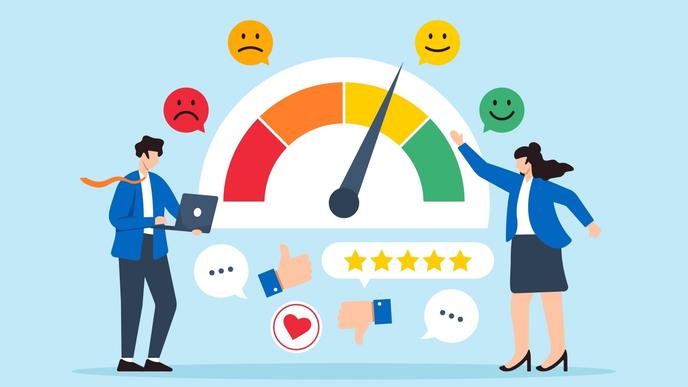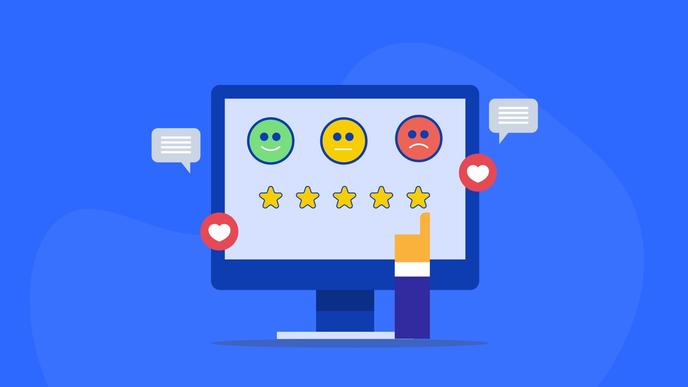Critical Mistakes That Will Destroy Your Company’s Reputation
In reality, one of the most valuable and fragile assets of a company is not its production equipment, financial resources, or other property.

A business can survive in an unstable economy and under limited conditions, cope with intense competition, logistical challenges, and lack of funds. The only capital a company can lose in an instant due to its own fault is its reputation. Today, in the era of technology and social media, this asset has become especially vulnerable. In this article, we explore which mistakes lead to the destruction of a company's reputation and how to avoid reputational risks.
What is Business Reputation and Why is it So Important
We are used to thinking that reputation typically belongs to an individual. However, a separate concept exists for business reputation. It refers to the overall evaluation of your company by stakeholders-customers, clients, investors, partners, and employees. In other words, business reputation is an intangible asset that enhances the economic value of a company. It reflects public opinion regarding the company's operations and social responsibility, the quality of its products or services, the professionalism of its staff and their client relations, innovation level, and so on.
That is why business reputation plays a critical role in a company's success and long-term market sustainability. A good reputation attracts audiences, as potential clients prefer companies with positive reviews. It also draws in investors and talented young professionals. A business with a strong reputation more easily attracts partners and retains skilled employees. Furthermore, such companies weather crises more easily, thanks to the continued trust of employees, clients, and partners.
Unacceptable: 10 Mistakes That Will Destroy Your Reputation

Even a single mistake can instantly burn your reputational capital. Let's examine the most common causes behind the downfall of once highly successful companies.
- Mistake #1. Deceiving Customers
This is the most common mistake made by all kinds of firms-from small family businesses to global corporations. It doesn't matter how you lied: exaggerating product capabilities, promising incredible effects, describing non-existent features, or overcharging. All of these damage your reputation and reduce customer trust, possibly leading to loss of your audience. Any false information about the company or its services will backfire.
- Mistake #2. Deceiving Employees
It's equally important to remain honest with your employees. Transparent communication earns their trust and respect, makes them feel valued, and boosts motivation and loyalty. Being open also helps prevent internal conflicts and misunderstandings, enhancing productivity. Employee care is a vital part of a brand's positive image.
- Mistake #3. Ignoring Customer Feedback and Complaints
Maintaining a good reputation requires swift, competent crisis response, especially to negative feedback. By reacting quickly, you might fix the situation and even increase customer satisfaction. Effective resolution builds long-term trust. Ignoring complaints risks worsening your reputation and losing customers.
- Mistake #4. Rude Behavior Toward Clients
Rudeness must never be excused or confused with casual tone. Swearing, insults, and impolite speech are inappropriate in a professional setting. Customers expect respectful, courteous treatment-don't let them down.
- Mistake #5. Failing to Meet Deadlines and Promises
This gives customers the impression that your company is unreliable. Meeting commitments reflects good business etiquette and reinforces trust. Failing to do so undermines customer confidence and pushes them toward competitors who fulfill their needs.
- Mistake #6. Lack of Emotional Connection and Feedback Channels
Maintaining your reputation means listening to customers, conducting surveys, and understanding their needs. All customer-facing employees must show engagement, empathy, and genuine willingness to help.
- Mistake #7. Inadequate Data Protection
Personal data leaks cause scandals, damage reputations, and affect relationships with partners, suppliers, and stakeholders. Such incidents lead to loss of clients and business ties.
- Mistake #8. Avoiding Responsibility
This gives the impression that your company doesn't value customers or take accountability. Passing customers from one employee to another (the "ping-pong" effect) complicates their journey and increases the risk of losing sales and loyalty.
- Mistake #9. Internal Disorganization
It's vital to coordinate all internal processes and ensure transparency in pricing and service conditions. Even hidden operations affect public perception. Customers want to trust the companies they support.
- Mistake #10. Low Product Quality with High Prices
To justify high prices, show your product's uniqueness, the effort invested, the expertise behind it, and how it meets customer needs. If people don't see the value and only see a high price, they'll go elsewhere. Every price must be justified-explain it clearly, don't just claim it's "not expensive." Instead, prove its worth.
Lectera’s Online Courses by topic
Learning from Others: How Famous Companies Damaged Their Reputations

- Lesson #1. Volkswagen Scandal (2015)
Volkswagen sold diesel cars as environmentally friendly, but they were fitted with software to cheat emissions tests. The deception led to global backlash, a sharp stock drop, CEO resignation, a €4 billion lawsuit, and total reputational collapse.
- Lesson #2. Nestlé and Child Labor
Nestlé was criticized for allegedly using child labor on cocoa plantations in Côte d'Ivoire. At first, they denied the claims, then admitted supply chains were complex and untraceable. Although they later partnered with a human rights group, the damage was done.
- Lesson #3. Pepsi's "Women's Chips"
Pepsi planned to release a line of less crunchy, purse-sized Doritos for women. The idea sparked accusations of sexism. Though the product was never launched, the backlash tarnished the brand's image.
- Lesson #4. Fisher Investments' Sexist Joke
In 2019, founder Kenneth Fisher compared client acquisition to seducing women. The joke was labeled sexist, leading to a scandal despite his apologies.
- Lesson #5. Papa John's and Racism Allegations
Founder John Schnatter criticized the NFL's stance on athletes supporting Black Lives Matter. Shares dropped 11% within hours. Further racist remarks surfaced, leading to his resignation and removal from the board.
Reputation is shaped by all aspects of a business-from product quality and customer service to crisis management and public statements. That's why it's crucial to monitor every detail, even seemingly insignificant ones. Avoid mistakes that could damage your company's image. Remember: trust and reliability are the foundations of a successful business-and only a strong reputation can guarantee that.
Share this with your friends via:
Latest News

A significant stage in the development of the alternative education system has begun in West Northamptonshire in the UK: the County Council is actively calling on parents, guardians, and trustees to participate in shaping the future of this key area.

Outwoods Primary School in Atherstone, Warwickshire, having experienced deep sadness after the loss of their famous cat, Silla, has found solace in a new pet – a Maine Coon named Aloysius O’Hara.

In modern universities, artificial intelligence, and in particular ChatGPT, is rapidly transforming from a controversial tool into a full-fledged student assistant.

An innovative educational project is gaining momentum in UK primary schools, aiming to change attitudes towards video games.

The Massachusetts Institute of Technology (MIT) presents MIT Learn – a revolutionary online platform that opens a “new front door” to access university knowledge and resources.












 Test: How Psychologically Mature Are You? Check Your Inner Foundation.
Test: How Psychologically Mature Are You? Check Your Inner Foundation.
 Test. Check Your Social Media Dependency Level!
Test. Check Your Social Media Dependency Level!
 Test: What Business is Right For You?
Test: What Business is Right For You?
 Test: How Prone Are You to Abusive Behavior as a Manager?
Test: How Prone Are You to Abusive Behavior as a Manager?
 Test. What superpower would you possess if you were a superhero?
Test. What superpower would you possess if you were a superhero?
 Test. What Should You Let Go of Before Winter Ends?
Test. What Should You Let Go of Before Winter Ends?
